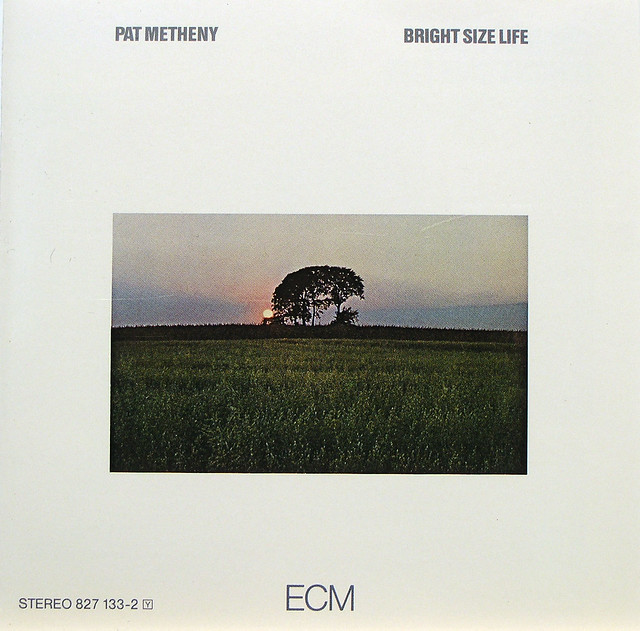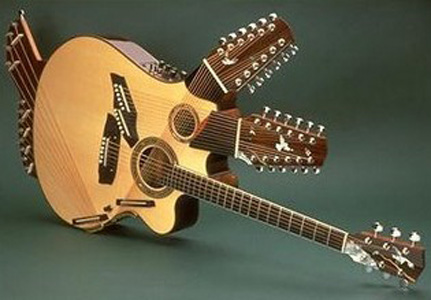Today I'd like to share with you an album that's very special to me - it's my dad's bands new album, which came out only a couple of weeks ago.
Super Duo, as the band is called, was started by my dad and Cezary Krajewski in 1984. The group played music that oscillated around the flamenco/jazz areas - sort of like the famous Al di Meola/Paco de Lucia/John McLaughlin trio. The group has enjoyed quite a fair amount of success (bearing in mind their music ain't as catchy as Rihanna and the lot) and has been heralded by many as the best polish guitar duo. As a result, they had the great opportunity to tour many countries: Germany, France, Finland, Denmark, Russia, North Korea (!!!), Holland, England, etc. That was pretty neat for two guys stuck behind the Iron Curtain during a time when getting a passport was just as difficult as finding a decent piece of meat in a shop.
Besides that, they have frequented many festivals: Fama (1985), Jazz Jamboree (1985), Roskilde Festival Denmark (1986), Jazz Praha (1987), De-Bron Dalfsen Holland (1990), Muse Berlin (1990). They have also had the pleasure of sharing the stage with such great acts as Al di Meola and Take 6 in concert halls like the Royal Festival Hall and the Barbican Centre in London. Unfortunately, due to Krajewski's tragic death in 1997, the group ceased to exist.
But now, after 17 years of absence, Super Duo, together with one of the best polish flamenco/latino guitarists Przemyslaw Haluszczak, is back with a new album - 'Gitarolo'. This time, the raw sound of a guitar duo has been backed by grooves crafted by Grzegorz Kopala. As a result, Super Duo became....yep, you guessed it - a trio.
The 'Gitarolo' album features 8 tracks, 4 of which are new renditions of the band's old songs, while the other half constitute new compositions. The addition of Kopala's background vibes gave the band a bit more modern touch that should render the music more appealing to wider audiences. I must admit that I was initially quite scared of these experiments but hearing the older songs in their new versions was quite refreshing (maybe with 1 exception ;) ) and I'm glad that the tunes still have a similar feel and aesthetic as the 'originals'.
My personal favourite from the album must be 'Tarantos Ali-Baby' which is a slight twist on 'Fis-dur Ali-Baby' (a song from their 1994 'Super Duo 3' album). However, due to Haluszczak's 'break-down' solo in the middle of the song (btw, it really is a mutherfucker of a solo - i was truly impressed) the tune ended up having a slightly different form - hence the name change. Besides that, I really enjoyed 'Farruca' - a sweet, chilled out flamenco-ish track with fantastic vocals by Kopala - a perfect song for a lazy Sunday afternoon.
I also believe the bands music benefited from getting Przemyslaw Haluszczak on board. My dad has always been more jazz-oriented (which is reflected in his solos) and jazz-influenced (which I think is reflected in his compositions) and with Przemyslaw's spanish/flamenco approach they tend to complement each other quite neatly - with great benefit for the resulting sound.
Anyways, the album is a double-disc release with a bonus DVD on which you can find: a few video clips to the songs from the album, an interview with a world-famous luthier who is responsible for making the guitars used by my dad and Przemyslaw, interviews with notable polish artists (the conductors: Krzesimir Debski and Zbigniew Gorny; and actors: Katarzyna Skrzynecka and Witold Debicki) who explain the influence Super Duo's music had on them, some trivia and a video of a great flamenco dancer - Malgorzata Moskalewicz.
They used to call themselves: 'The fastest guitars in Poland'. Did they manage to keep up the tempo? Well, just see for yourself...
I've also managed to upload a few tracks from their first album - Gluche Krokodyle (1986). Check 'em out!
And last but not least - some oldschool footage from a lil' TV performance they did in Czechoslovakia (!) in 1986:
Spread the love!





